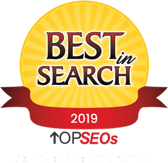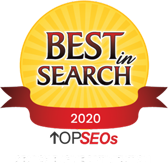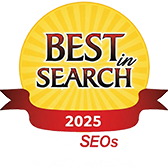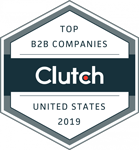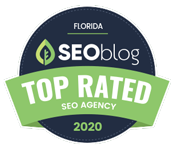
Everything about how to manage your budget can be found in the guide, “How to Maximize Your Google Ads Budget,” that small business needs to know about PPC management. Tips, examples, and strategies are discovered.
Welcome to an in-depth guide specific to PPC for small businesses. If you're in the industry of How-To Guides & SEO Tips or want to start your very first campaign, then this article helps you find out how you can make the best of your Google Ads budget. As of August 2025, competition is increasing tenser of the influx of business operations online, which may face an increased requirement to smartly Gartner and handle the ad management environment. Take charge of yours today, and monitor how you can use your pay-per-click budget wisely and achieve greater ROI through every dollar you spend on advertising.
What is PPC management for small businesses?
For the said operation, large companies operate with substantial budgets, but small companies do not. There must be a way to do more with fewer resources at the hands of small business. Properly said, the majority of resources are very limited by their very nature. That is why they need a little with a high cost-effectiveness, which will in turn benefit the small-scale businesses able to take full advantage of the budget provided.
This basically means a small business can get the same service as that of others but pay less and generate equal sales. Things that should be done in PPC management:
- A clear PPC budget consistent with business objectives
- Keyword research in order to identify a high converting, low-priced keyword
- Compelling ad copy
- Landing page conversion optimization
- Performance through metrics like CTR, CPC, and ROI
- Data-driven decision for further improvement.
Effective pay per click management is a magical blend of strategy and operational skill. It doesn't only mean clicks, but the most valuable ones. Rather, it is good at attracting high-quality traffic that helps to change interest into real leads for companies.
Why PPC management for small businesses Matters for How-To Guides & SEO Tips
Being visible is definitely essential in How-To Guides & SEO Tips niche. Whether you engage in selling digital marketing services, SEO audits, training courses – really reaching out to your target audience can only bring good things. A PPC does the trick: It drives high-intent traffic straight to your offer in real time.
Say, for example, you have an SEO consultantship focused on early-stage startups and freelancers. Via the organic route, traffic could be slow to come by in a crowded search environment. Through PPC, however, you can bid on things like "cheap SEO for small businesses" or "PPC marketing agency for freelancers," generating instant exposure. However, it's said that it's going to be pricey bidding blindly. The better PPC management makes sure that the pay-per-click ads of budgeting concentrate on some result, not wasted clicks.
For example, by using tools like Google Ads, Google Analytics, and Microsoft Clarity to track performance data, you can understand which ads are actually working, which landing pages convert and how much your money is worth: there is definitely a budget when it comes to further expenditures. Proper adjustments will double—and even triple—the results, e.g., when you allocate money on the basis of superior campaigns rather than the comparatively worse ones.
The first few SEO and paid advertising strategies that a small business can instantly implement are discussed below:
- Geotargeting: Run advertisements with a regional or city focus to reduce waste and increase local relevance.
- Negative keyword list: Get rid of those irrelevant searches that end up costing a fortune and then extending no value.
- A/B test it all: Test ad headlines, descriptions, and calls-to-action to see which ones perform best.
- Start retargeting campaigns: Bring back visitors who struck a chord back but did not convert.
Link your Google Ads account to Google Analytics for best practices--those who have done it claim that this fusion of data gives you a full picture of the customer's journey from clicks to the step where conversion occurs.
The correct use of PPC lets you find out which keywords lead to conversions and which keywords only generate traffic. This information is invaluable to individuals running small businesses on tight budgets. When more of the right users can be converted at lower costs, then you are doing a good job in optimizing your efforts and refining your messages.
The Role of Budgeting in PPC Strategy
Every effective Paid Media strategy is centered around a constant approach to Paid Ads budgeting. Most small business owners make the mistake of either under funding the campaigns or overspending without any clear plans. Smart budgeting means finding that sweet spot between reach, performance, and cost-effectiveness.
Set your initial monthly ad spend at the same value as a single customer lifetime value (CLV) and conversion rate. If the average customer brings you $500 in revenue and you convert at 5%, then you can spend up to $25 per visitor. Thus, any PPC strategy should be built around these economics.
- Also use budget-allocation tools within Google Ads to:
- Allocate more funds to campaigns that convert the most.
- Pause or Reduce Spend for Underperforming Ad groups.
- Test budgets pacing strategies like daily spend caps or shared budgets across campaigns.
Then, on schedule on the way to the next round of the negotiation, Anil was sent for, and he came, shortly after lunch, accompanied by two other delegates from Israel, almost strutting as he walked along. Then Harold, Catherine, Jane, and Margaret also came in to join the group.
How to Align Paid Ads Budgeting with Business Goals
The sterling execution of these tasks for the small enterprises depends on their specific practical ideas based on how effectively the paid ads budgeting strategies work out. They should make sure that business owners specifically fit most of their advertising expenses with these very objectives referred to as targeting. Let success mean something to these owners, which might be more leads conduit to increased web hits or greater online sales. The goals are then converted into a follow-up ad budget which should be realistic over time and go into account with high-competition keywords as well as the costs of the platforms and geographical targeting.
Segment your budget per campaign, ad group, and even every single keyword. If necessary, these tools might help in planning the projected costs and changes in conversion and click-through rates; Google Ads and Facebook Ads forecast outcomes on funding thresholds. Start small as a small business, and then increase amounts as performance metrics such as CPC (cost per conversion) and ROAS show improvement.
Understanding Keyword Relevance and Search Intent
Underlying effective PPC management for small businesses is the ability of matching ads with the intent of searching users. Use tools like Google Keyword Planner, SEMrush, and Moz to seek out high-intent but low competition keywords that are in tonality with what you are selling or offering. It is an advantage to target longer-tail keywords because they are cheap on a per-click basis and convert better owing to the specific intent of the users.
Explore different match types like broad match, phrase match, and exact match so you can examine and identify which area will work best for you and give you the best ROI. Negative keywords are also possible better in keeping the unwanted traffic from bleeding your PPC budget to a great degree.
Ad Copywriting & A/B Testing Techniques
Writing solid ad copies is more than mere salesmanship–it is all connection. Clear, benefit-rich ad copy can do a direct impact on your Google Ads' click-through and Quality Scores. Include strong calls to action, unique selling propositions, and location-based modifiers in your ad text for local engagement.
A/B testing is a very crucial part in the refinement of your campaigns. Create a few versions of your ad and make some changes within the headlines, description, and display URL. Run all the ads simultaneously and then locate the ad combinations that spur the most appealing results. Small businesses can then 'nuts-and-bolts' an opt-in system for paid ads with the littlest budget-loss possible.
Geo-Targeting and Device Optimization in PPC
Effective maintenance of PPC strategies for small-scale entities involves keeping relevance at a maximum. Geo-targeting allows advertisers to target particular geographic locations used in exhibited ad copies, meaning that’s really great for both services that exist locally and storefronts. you can use radius targeting, ZIP Code filters, or else exclude ir-relevant zones to make sure your ads reach a reasonable local audience.
Think of devising device level optimization. Metric different analysis which can be done with the usage of desktop, tablet, and mobile to analyze which devices or platforms are converting higher. Adjust your bids accordingly. Mobile devices account for the majority of local search queries. Optimization entails extremely high performing with minimal loads and load speeds when using mobile friendly landing pages.
Analyzing Performance and Managing Optimization
To drive business profit, it is very necessary for a small business to include optimization into their PPC procedures. Do or give the strong indication of various vital performance indicators like the click-through rate, conversion rates, quality score, and ad relevance. Running those KPIs in real-time is supported by most digital marketing platforms that provide built-in analytical dashboards.
Regular performance reviews, typically weekly, are important to know whether an ad or keyword advert is underperforming, and what adjustments can be made rather than wasting more that advertising cost. Use preconfigured rules as well as include scripts for turning off the most unproductive ads and increasing budget allocations to the best performing segments at peaks times throughout the sales period.
Integrating PPC with Organic SEO Strategies
The most sustainable strategy integrates organic and paid activities, although PPC brings immediate visibility. Side by side with SEO management, PPC management for small businesses could contribute to long-term digital growth. Practical advice says one could produce blog post, product page, or FAQ content by learning from the keywords that attracted the highest revenues from PPC.
A better-targeted content or ad will be one of the benefits to be had with this initiative by using organic search data, like top landing pages and bounce rates. So, there definitely is a relationship between pay-per-click advertising and SEO, but it goes beyond just visibility and lends itself to far more thoughtful distribution and budgeting of paid ads across the channels on the basis of results of correlation study.
Common Mistakes in PPC Management for Small Businesses
One of the most common errors made by small companies is to start a campaign without ensuring enough research done and no clear goals. It means that all future campaigns run, at least on paper, are fraught with failure in budget and performance. Examples are:
- Bidding too much for low-intent keywords
- Non-urgent demand for uncreative ad copy
- Traffic running into non-optimized landing pages or bad traffic
- Neglecting negative keyword lists
- Ignoring mobile users at all costs
Avoidable minuses that make for a neat PPC campaign structured and monitored carefully with a continuous learning phase.
Why Small Businesses Should Prioritize PPC Management
Much of small businesses today face a highly competitive landscape when it comes to digital with limited resources. In such a context, PPC management for small businesses becomes an important endeavor. Proper leveraging of structured campaigns and optimized advertisements can make even the smallest brands or businesses stand out among such crowded markets. Unlike strategies based on improving search engine rankings, which are time-consuming and slow to yield results, one advantage of PPC is it makes it easy for companies to become visible the moment they decide on how much they would like to pay to be seen and to whom they want to speak.
Not managing your PPC campaigns properly will lead to bad decisions in allocating your budget therefore a loss in ROI. Therefore, ultimately, having a tight paid ads budgeting strategy alongside smart PPC campaign design would keep one business from the risk of stagnation but rather might raise it to price levels at which it can thrive. Small enterprises might want to keep their PPC goals in line with their business objectives because PPC is targeting the people they want to reach and is refining the way the business represents itself in the context of their brands.
Optimizing Paid Ads Budgeting: Best Practices
The clear development of Paid Ads Budget Frameworks is crucial towards effective PPC Management. Here are the best practices which any small business can start implementing:
- Design really specific monthly budget: Put a particular amount of money on the table, considering your overall marketing targets. Certainly, the budget has some room for expansion if all is well in campaigns.
- Do geotargeting: Avoid irrelevant clicks by zeroing in on ads being shown in selected geographic areas.
- Realize the realistic amount of CPC auctions: Investigate the industry norms, competitor levels, and profit margins to determine rational payment per click rates.
- Use ad scheduling: Run advertising campaigns when the conversions are at their peak, thus increasing your return on investment.
- Be wary every now and then about adjusting campaigns: Its not like "Set and forget," so PPC must be analyzed at least once a week so that the loss can be prevented and better in terms of making decisions.
Efficient budgeting doesn’t just save money—it also enhances campaign performance by channeling resources to what works.
Landing Pages and Conversion Tracking: Turning Clicks into Customers
Your PPC campaigns will not be ready for fishing nets with holes in them, apart from avoiding the other conditions mentioned above, Hassib pointed out. The moment prospective customers click on your ad, it is recommended that they be directed clearly towards those contents that convert highly. Include clear headlines and trust-signals such as testimonials and place CTA buttons where they are easily recognized.
Secondly, the conversion tracking is a must do for every PPC campaign lover. Utilizing platforms like Google Ads or Meta Ads, conversion tracking can be integrated directly into a website. It can help identify which ads and which keywords or when in the day provided the best return so as a result, deeper optimization can always be achieved in the campaign for a much greater ROI from that particular cause.
This is how the paid ads budget can be utilized than the investment in correct implementation of tracking techniques: "You make money, not spend it.
Platform Selection: Choosing the Right PPC Channels
The right platform could immensely influence your entire campaign and Google Ads remained the most popular choice because of its enormous reach as well as targeting intentionally implemented. Some social platforms like Facebook Ads, LinkedIn Ads, and the increasingly effective TikTok Ads may eventually provide better targeting capabilities to reach niche audiences directly.
What really matters is that small business owners understand and appreciate what their customers are actually looking for. Considerations like this may bring out the fact that a locally located business to-business services provider might have more success with ads on LinkedIn, while those from a boutique clothing brand might find Instagram of more help.
Because effectively managing PPC for small businesses is about diversifying your PPC channels, doing this will capture more touchpoints within a buyer journey.
Measuring Success: KPIs Every Small Business Should Track
Key Performance Indicators (KPIS) to focus on for ensuring PPC strategy is on the right path include:
- Click-Through Rate (CTR): It is an indicator of an advertisement's performance and relevancy.
- Cost Per Click (CPC): This KPI measures the effectiveness of your bid strategy cost wise.
- Conversion Rate: It indicates how effectively a visitor can be converted into leads/clients by one's landing page and CTA.
- Return on Ad Spend: Forward-thinking PPC marketers: This is the real standard of total profitability.
It should be remembered that improvement is iterative. Keep conducting A/B tests and use your data to take data-driven decisions.
Frequently Asked Questions
What is PPC management for small businesses in simple terms?
Pay-Per-Click management is a strategy or principle wherein paid advertising budgets are made to work more effectively using systematic and intentional methods.
How does PPC management for small businesses help?
An improvement operation in tune with searching behavior and industry best practice.
Can I apply PPC management for small businesses myself?
Absolutely. With the right tools and structure, even beginners can begin applying these principles effectively.
What tools should I use?
Start with Google Search Console, SEMrush, and keyword research tools. These provide visibility into how PPC management for small businesses impacts performance.
Next Steps
If you’re ready to take your marketing to the next level, implementing a customized PPC strategy is the way forward. Whether you're running ads for the first time or looking to refine your existing campaigns, the right guidance makes all the difference.
Request Your Free Digital Marketing Consultation Today!
Ready to Grow Your Business?
Smart digital advertising can fuel the growth you need. Link2City specializes in PPC management for small businesses, ensuring every dollar spent delivers visible results.
Explore more about how we help businesses like yours:













